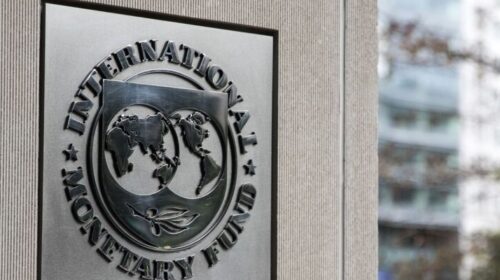FQM CALLS ON NGOs TO ‘GET IT RIGHT’ ON MINING SECTOR’S CONTRIBUTION TO DEVELOPMENT | ZAMBIA
Zambia’s largest taxpayer, First Quantum Minerals, has called upon non-corporate actors to better acquaint themselves with the mining sector’s contribution to community development.
The mining company said that inaccurate reports from some non-governmental organisations (NGOs) have been misleading and constitute the spreading of ‘fake news’. Such reports have the potential to unfairly damage reputations, and also tarnish their reputations as being the flag bearers of good governance/honest brokers.
“We work hard to leave a lasting and positive legacy everywhere we work. Our corporate values dictate that we devote considerable resources to supporting government’s efforts to help improve the living conditions of the local communities wherever we work,” said Kansanshi Foundation Corporate Social Responsibility Manager Bruce Lewis.
And he emphasised that many NGOs work tirelessly to support communities, pointing to the strong relationship and monthly meetings with the Zambia Extractive Industry Transparency Alliance (ZEITA), a consortium of 34 NGOs based in the areas surrounding the company’s mines, which do represent those communities.
There were many manifestations of FQM’s presence in Solwezi and at Kalumbila, especially significant infrastructure projects, costing millions of dollars, he said. They include the rehabilitation of Solwezi General Hospital and the construction of health posts, classroom blocks, teacher’s accommodation and markets for traders. These constitute valuable additions to the government and the communities’ physical resources.
In addition, Mr Lewis said: “Our teams – everyone from health practitioners and environmentalist to community development specialists – work in partnership with the communities and government to help understand their concerns and priority needs. By doing so we can respond by working to optimise benefits and reduce negative impacts.”
He appealed to NGOs to better appreciate how much work has gone into planning and implementing what has been achieved. The company well recognises that there are many outstanding challenges in the North-West but that that not all the problems, pre-existing and new, can be solved, at least over-night. Also, he pointed out, no mining company is responsible for solving all of a country’s problems. FQM hopes that NGOs will in future, take adequate time to assess local situations more thoroughly and take into account the broader context of what they are observing. In such a case FQM would welcome suggestions on how problem situations might be resolved, as a form of positive mutual problem solving.
In line with these sentiments, FQM was interested to read that a member of the African Studies Association of Australasia and the Pacific had identified and written about such issues. Researcher Margaret O’Callaghan, had published a paper on the subject in the Association’s journal last year. She pointed out that NGOs could and should play a valuable role in a mining boom but that they did a dis-service to the communities they aimed to serve if they published reports which were inaccurate and biased. She also recognized that there were always many challenges for governments and communities in adapting to the presence of mines, and for companies to work effectively to resolve them.
O’Callaghan noted that “The situation in the mining sector is changing: there have been improvements globally over the past decade in environment and social-related policies and approaches. There are stronger checks in place and the cost of not doing the right things is now very high for the reputations of companies and consequently their share prices.”
Continuing, she wrote: “While the improvements may be occurring far too slowly in some places, those reviewing a situation need to come to an area with an open mind and not just jump to foregone conclusions. It is hardly justice to pre-judge what is going on, even when some problems are obvious. The roles played by other actors also need to be considered before the finger is pointed, especially given the roles of local government, traditional authorities, local businesses and even the communities themselves.” She also emphasized the need for positive, collaborative problem-solving.
20 total views , 1 views today





